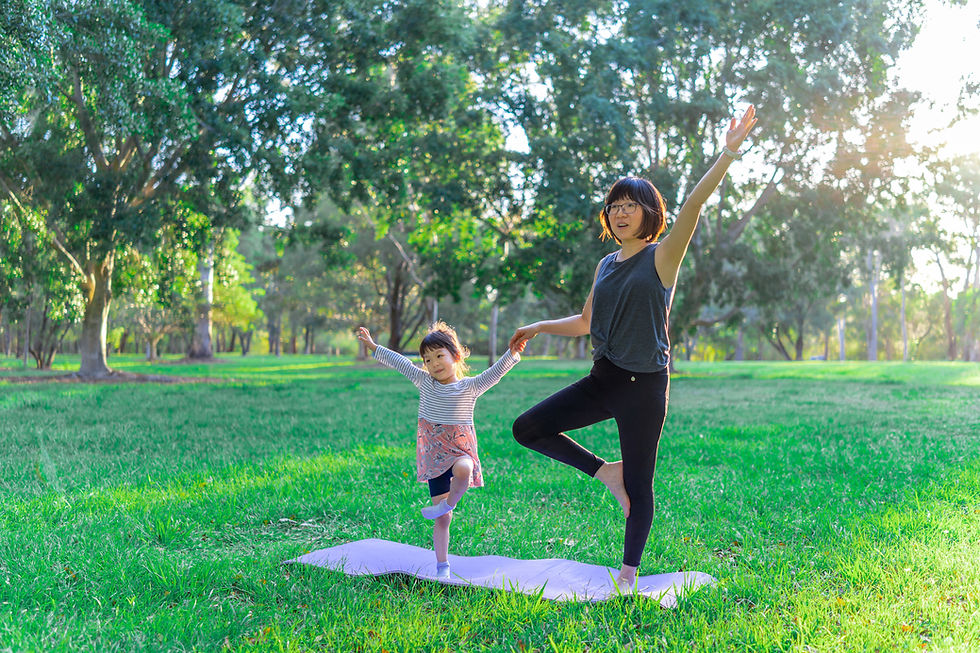What is vestibular therapy?
- Dr. Julie Gray, PT, DPT, OCS

- Oct 15, 2022
- 4 min read
Updated: Oct 5, 2023

If you are struggling with dizziness, vertigo, migraines, motion sickness, and lightheadedness you may feel lost and confused on where to turn to for help.
Maybe you’ve talked to a friend, or even have seen a physician, but no one is really understanding your struggles with these issues and the fear they have left you with.
We are here to offer you help and hope!
Vestibular therapy has been shown to be effective for many different disorders and symptoms like BPPV, vestibular weakness (hypofunction),vestibular migraine, neuritis. labyrinthitis, and Meniere's disease.
To learn more about vestibular and what it means, be sure to check out or other blog: what is vestibular?
People with vestibular disorders may suffer from vertigo (room-spinning sensation), dizziness or light-headedness, motion-sensitivity or motion-sickness.
Other symptoms may occur like nausea, vomiting, ear ringing or pain, difficulty reading, fatigue, difficulty concentrating, and falls or almost falling.
Sounds like a lot to manage… and we get it!
These symptoms can be overwhelming.
Your symptoms are likely affecting your quality of life, isolating you from your family and friends, and eliminating any of the activities you might have once enjoyed like exercise, restful sleep, going to the movies, or driving.

This leaves people to live a more sedentary lifestyle, which can lead to developing or worsening depression or anxiety, and can lead to worsening weakness in their vestibular function.
It’s a vicious cycle, but there are solutions to overcome it!
What is vestibular therapy?

Vestibular therapy is a special type of therapy designed to alleviate problems related to dizziness, vertigo, post-concussion syndrome, and imbalance.
It’s typically performed by a physical or occupational therapist who has advanced training in the vestibular and balance systems.
Vestibular therapy involves assessing and treating all your systems of balance, including your eyes (visual system), inner ear (vestibular), and joint sense (proprioception) and how your brain manages all that information to perform an action!

Physical therapists are the movement experts!
So it would make sense that if you're having difficulty with moving because of dizziness, you would seek out a vestibular physical therapist!
During the assessment, we perform different tests and measures to determine where the symptoms are coming from, whether that be from the inner ear (vestibular system) or somewhere else.

We develop strategies for strengthening those areas of weakness or compensating around them.
The exercises you can expect in vestibular therapy:
1. Canal repositioning maneuvers.
These exercises are used if vertigo is due to BPPV.

BPPV is treated with different head and body positioning maneuvers in order to clear out debris that has fallen into a part of the inner ear that it does not belong.However, it's important to note that this should be performed by a trained vestibular therapist to effectively target the correct portion of the semicircular canal and clear the debris using the correct maneuver.
Using the incorrect maneuver can potentially lead to causing the debris to fall into a different canal and can cause worse symptoms.
And we wouldn't want that!
If there is an underlying vestibular weakness whether from infection, age, or even migraine related disorders we commonly treat this with gaze stabilization and habituation exercises.
2. Gaze stabilization:
These exercises strengthen the reflex that helps to coordinate your head and eye movement (called the vestibular ocular reflex).
This helps to keep objects still and clear as my head moves or while my body is in motion.

Gaze stabilization helps to keep everything clear while I'm walking and on my phone at the same time. If you have a weakness here, you may not go around seeing double, but it may cause you to feel light-headed and dizzy when you are turning your head quickly.
Exercises with gaze stabilization might involve having you look at a target and turn your head and/or your body at certain speed.
We can add challenges by making the target you are looking at more complex like looking at a checkerboard, adding brain game challenges, or adding complex surface conditions like standing on foam
3. Habituation exercises
Habituation exercises are aimed at reducing symptoms through repetitive exposure to the movement that causes symptoms.
If, you are motion sensitive this might not sound very fun.. I get that.

But as a trained vestibular physical therapist, my job is to break down an activity you are having difficulty with, and helping train your vestibular system to understand that motion is healthy. This is important as it helps your balance systems and your brain recalibrate to learn what’s normal motion, and by repeating it, it builds up a tolerance to the motion.
4. Dynamic Balance Exercises

Different types of balance exercises can be changed by modifying the surfaces you are standing on, having you perform exercises with eyes open or eyes closed, and adding brain games or cognitive tasks during them. This is all with the goal of challenging the different systems of balance (eyes, inner ear, and joint sense) to make a weaker system stronger.
If it doesn’t challenge you, it doesn’t change you!
5. Neck Exercises
We may perform manual therapy to help improve the mobility of your neck,

Posture, flexibility, strengthening, and head and eye coordination exercises can all be vital to help strengthen the signals that are being communicated from your neck to your balance system.How can physical therapy help my vestibular disorder?
So whether your are feeling symptoms with changing position, feeling motion sick when you're in the car, or feeling light-headed when your scanning for items in the grocery store, vestibular therapy from a trained physical therapist can help you!
We know that taking the first step to wellness is often the hardest. It's hard to know what to expect, how you may feel, and how long it might take to feel better. We are here for you and to answer all your questions every step of the way.
You can arrange for your free DIZZY ANALYSIS when you call or schedule online to start to take control of your health, end your dizziness, and regain control of your life!







Comments